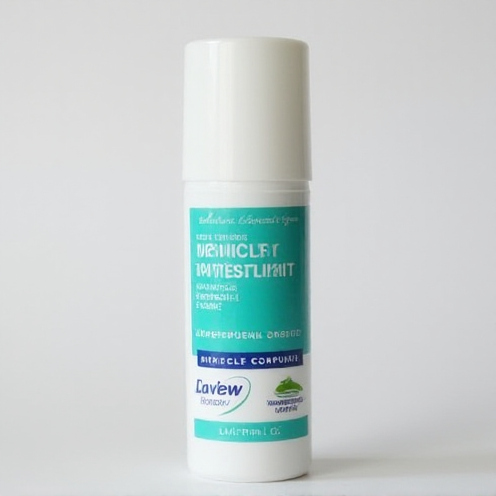Ciplox Icaps Ointment
Product Info
| Prescription required | Yes |
| Marketer | Cipla Ltd |
| Active Ingredient | Ciprofloxacin (NA) |
| Storage | Store below 30°C |
| Chemical Class | Fluoroquinolone |
| Habit Forming | No |
| Therapeutic Class | DERMA |
| Action Class | Quinolones/ Fluroquinolones |
| User Rating | 4.8 |
| User Reviews | 749 |
FAQ






Ciplox Icaps Ointment Reviews
Ciplox Icaps should be used in the dose and duration as advised by your doctor. Use it regularly and for as long as the doctor has prescribed. Finish the full course of treatment even if you feel better. Do not apply more than the prescribed dosage as it may increase the chance of getting side effects.
You may experience nausea, headache, and confusion as a side effect of this medicine. This is usually temporary and resolves on its own, but please consult your doctor if it bothers you or persists for a longer duration. Diarrhea may also occur as a side effect but should stop when your course is complete. Inform your doctor if it does not stop or if you find blood in your stools.
You should not take this medicine if you are allergic to any of its ingredients. Rarely, some people may have a severe allergic reaction which needs urgent medical attention. Signs of this include rash, swelling of the lips, tongue, or face, shortness of breath, or breathing problems. Special care should be taken in people with kidney problems while taking this medicine.
How Ciplox Icaps Ointment Works
How to Use Ciplox Icaps Ointment
Benefits of Ciplox Icaps Ointment
- In Bacterial skin infections: Ciplox Icaps is an antibiotic medicine that works by stopping the growth of infection-causing bacteria on your skin. It prevents the synthesis of essential proteins necessary for the survival of bacteria. It is effective against skin infections such as boils, impetigo, and infected hair follicles. It may also be used to treat infections in small cuts or wounds on your skin. This treatment has few common side effects and should clear up infections within a few days, but you should keep using it for as long as it is prescribed.
- In Treatment of Bacterial infections: Ciplox Icaps is a versatile antibiotic medicine that can be used to treat many different infections caused by bacteria. These include infections of the urinary tract, nose, throat, skin, and soft tissues and lungs (pneumonia). It kills and stops further growth of the bacteria causing the infection.This medicine usually makes you feel better quite quickly. However, you should continue taking it as long as it is prescribed even when you feel better, to make sure that all bacteria are killed and do not become resistant.
Uses of Ciplox Icaps Ointment
- Treatment of Bacterial infections
- Bacterial skin infections
Ciplox Icaps Ointment Side Effects

Safety Tips
Quick Tips
- It may cause minor burning, stinging, or irritation when applied. Inform your doctor if this does not go away.
- You have been prescribed Ciplox Icaps for the treatment of skin infections.
- If you think the area of skin you are treating has become more irritated and infected, you should stop using Ciplox Icaps and consult your doctor.
- You may have to use it for a long time before your infection starts to improve. Be patient and keep using it every day.
- Avoid contact with your eyes, nose, or mouth. Rinse it off with water if you accidentally get the cream in these areas.
References
- Ciprofloxacin hydrochloride [Prescribing Information]. Whippany, NJ: Bayer HealthCare Pharmaceuticals Inc.; 2016.
- Chaves RG, Lamounier JA. Breastfeeding and maternal medications. J Pediatr (Rio J). 2004;80(5 Suppl):S189-98.
- Medscape. Ciprofloxacin.
- Petri WA Jr. Sulfonamides, Trimethoprim-Sulfamethoxazole, Quinolones, and Agents for Urinary Tract Infections. In: Brunton LL, Chabner BA, Knollmann BC, editors. Goodman & Gilman’s: The Pharmacological Basis of Therapeutics. 12th ed. New York, New York: McGraw-Hill Medical; 2011. pp. 1473-74.
- Briggs GG, Freeman RK, editors. A Reference Guide to Fetal and Neonatal Risk: Drugs in Pregnancy and Lactation. 10th ed. Philadelphia, PA: Wolters Kluwer Health; 2015. pp. 275-78.
- Chambers HF, Deck DH. Sulfonamides, Trimethoprim, & Quinolons. In: Katzung BG, Masters SB, Trevor AJ, editors. Basic and Clinical Pharmacology. 11th ed. New Delhi, India: Tata McGraw Hill Education Private Limited; 2009. pp. 819-20.
- Central Drugs Standard Control Organisation (CDSCO).
